
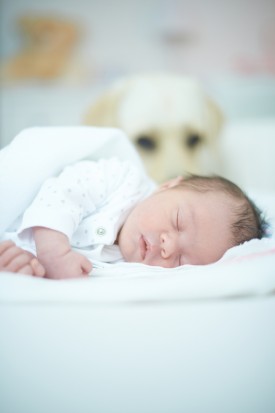
Dogs are of course pack animals, and treat you and the rest of your family as their pack. When you make a new addition to the “pack” in the form of a new baby, generally speaking, your dogs will ultimately come to treat them as part of the pack too, and may ultimately bond strongly with the new arrival, and be very protective over them, recognising their helplessness. However, the sudden absence of one of the family for a few days while they go into hospital to have the baby, and then the arrival back home with a whole new little life, will of course cause upheaval and confusion in the life of any dog!
Male dogs particularly are more likely to be affected by the presence of the new arrival, for a variety of reasons. First of all, while they will recognise the baby as a tiny person, unlike female dogs, they do not possess the same instinctive understanding of having babies, and the desire to nest and raise young. Secondly, male dogs tend to bond more strongly with their human handlers than female dogs, seeing themselves as the protector of the pack in a way that female dogs do not, and integrating the new baby into that pack without making your male dog feel pushed out can be a challenge.
Read on to learn more about how male dogs respond to the addition of a new baby into their homes.
Bringing a new baby home for the first time of course signals a big shake up in the house, and your dog will certainly feel this! Because male dogs tend to be more territorial than female dogs, it will take them a while to get to grips with this. They may exhibit signs of stress, and potentially take on guarding and protective behaviours such as patrolling the house, or possibly even scent marking around the home and garden. They are trying to regain a feeling of control over their territory, and let you and the new arrival know that they are still there and that this is still their place!
It is highly unusual for male dogs to be aggressive towards the new arrival, as they will recognise the baby as part of the pack from their scent and relationship to you. However, it is important to be on the lookout for jealousy and acting out around the baby during the early days of their relationship, and of course, be mindful of hygiene around your baby where your dog is concerned.
Once your male dog starts to see the baby as part of their pack, their protective instincts will kick in. Not only will they feel protective over the baby as part of the pack, but because they recognise the baby’s vulnerability, and feel that it is their job to protect them!
This means that you should watch carefully how your dog behaves regarding the baby when you have other people over to see the baby, as your male dog may actively guard the baby or try to warn off anyone that approaches it! The same is true if you walk out with your baby in a pram and your dog on a lead; supervise your male dog carefully to ensure that they do not become bad mannered or snappy if well meaning strangers lean in to coo over the new arrival!
Having a new baby within the home will of course turn your life upside down, and can present a lot of upheaval for your dog as well. It can be very difficult to juggle the demands of a new baby without making your dog fee excluded, and of course, the care of the newborn will be your first priority. However, it is important to do everything that you can to minimise the stress and change in routine for your dog. Ensure that they are still fed and walked at the same times each day, make a point of spending one to one time with them and giving them attention, and try not to push your dog out while you are taking care of the baby unless they are causing a problem.
You can reasonably expect male dogs to become rather more clingy than normal during your baby’s first weeks at home, and possibly become pushy where attention is concerned, or if they feel that the baby is getting more attention than them! Try to involve them in daily life with your baby, talking to both your dog and baby at the same time, and showing affection to your dog when the baby is present so that they build up positive associations with the baby’s presence.
No dog, however reliable, should be left unsupervised with babies or young children. This should not be too difficult to achieve, as of course you are unlikely to leave the baby at home alone, but manage your dog’s interactions with the baby carefully, and keep a very close eye out for the signs of any undesirable behaviours or aggression. Allow your dog to sniff and touch your baby when you are confident that they can be trusted, but try to avoid face licking and anything else that may spread germs and bacteria.
Handled correctly, introductions to the new baby should begin to form the foundations of a lifelong bond between your child and your dog, and they will likely already be firm friends by the time your baby is old enough to start crawling!
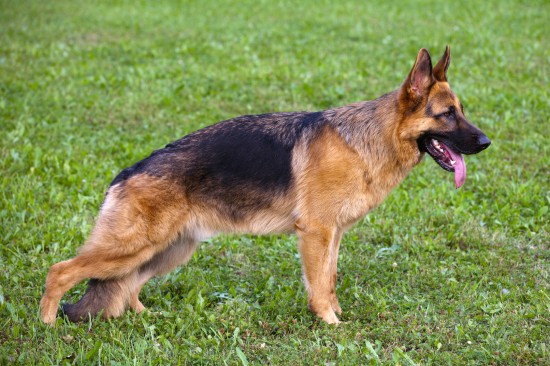 The Personality Traits Of The German Shepherd Dog
The Personality T
The Personality Traits Of The German Shepherd Dog
The Personality T
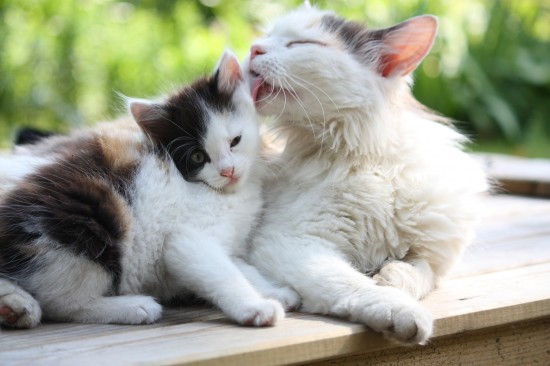 Your Cat’s Age In Human Years
Your Cat’s Age In
Your Cat’s Age In Human Years
Your Cat’s Age In
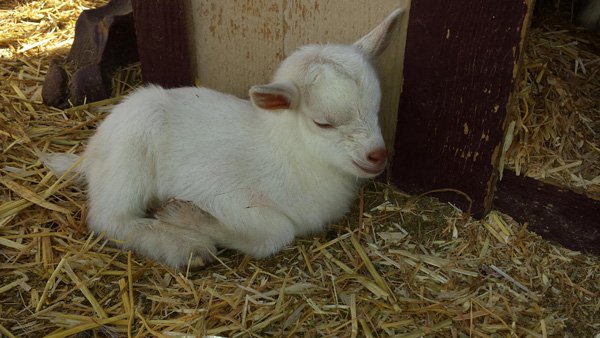 Pet Boarding Facility in Chapel Hill: Safe Heaven for Your Pet
Pet Boarding Facility in Chapel Hill: Safe Heaven for Your
Pet Boarding Facility in Chapel Hill: Safe Heaven for Your Pet
Pet Boarding Facility in Chapel Hill: Safe Heaven for Your
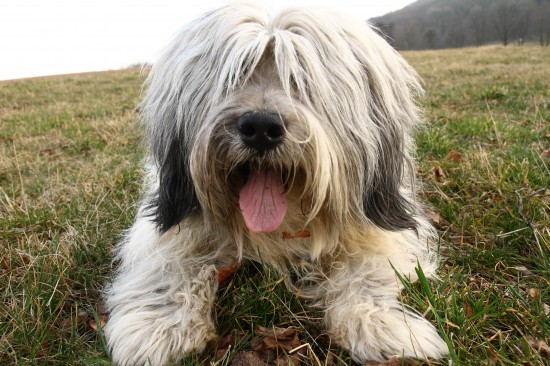 Polish Lowland Sheepdog Hereditary Health And Health Testing
Polish Lowland Sh
Polish Lowland Sheepdog Hereditary Health And Health Testing
Polish Lowland Sh
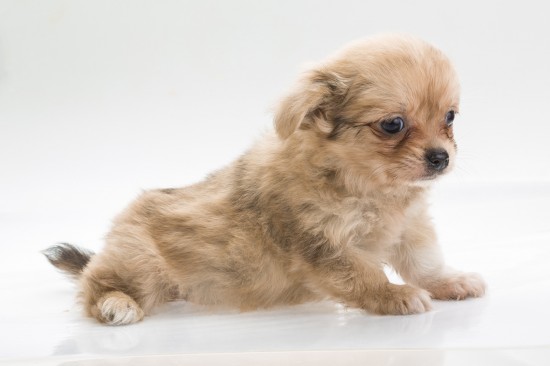 10 Of The Most Popular Small Dog Breeds Within The Uk
10 Of The Most Po
10 Of The Most Popular Small Dog Breeds Within The Uk
10 Of The Most Po
Copyright © 2005-2016 Pet Information All Rights Reserved
Contact us: www162date@outlook.com